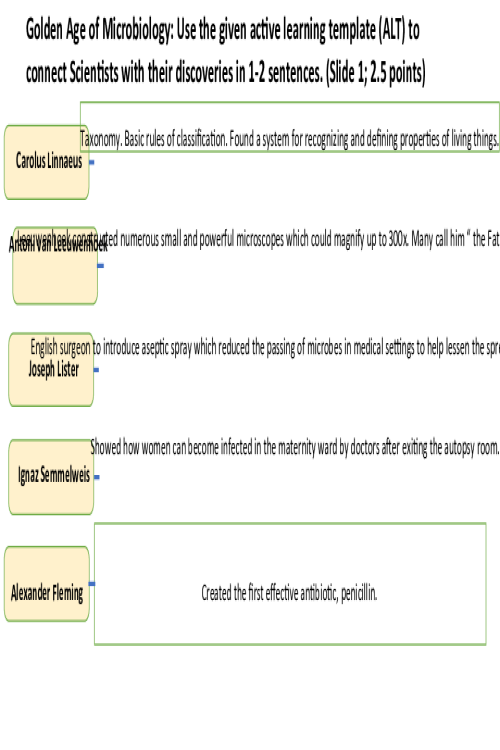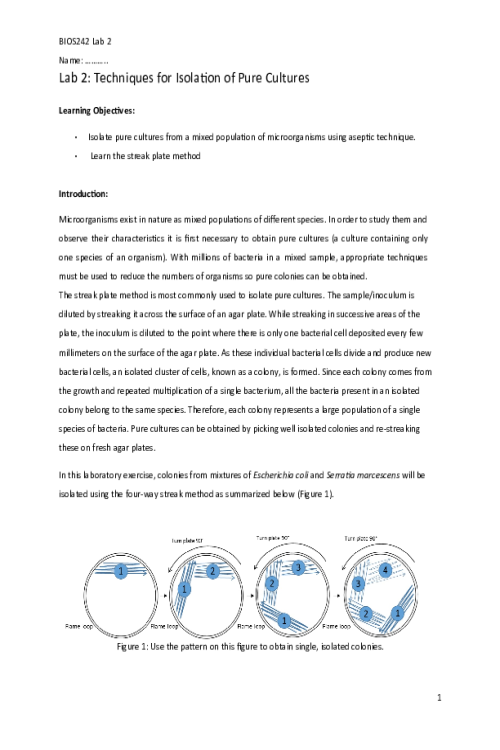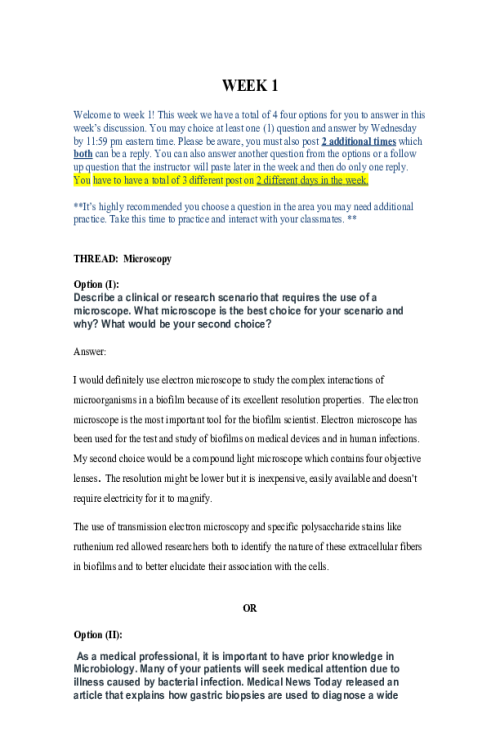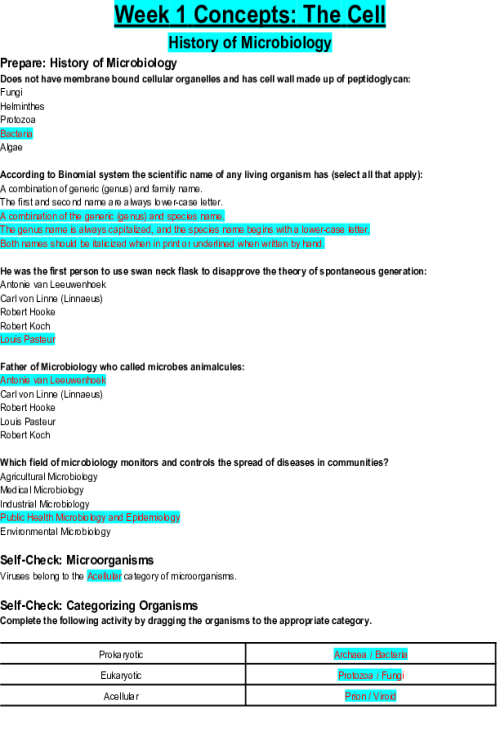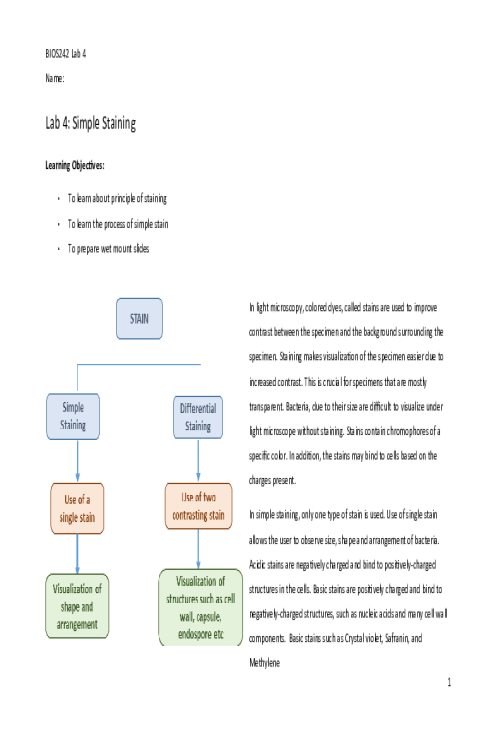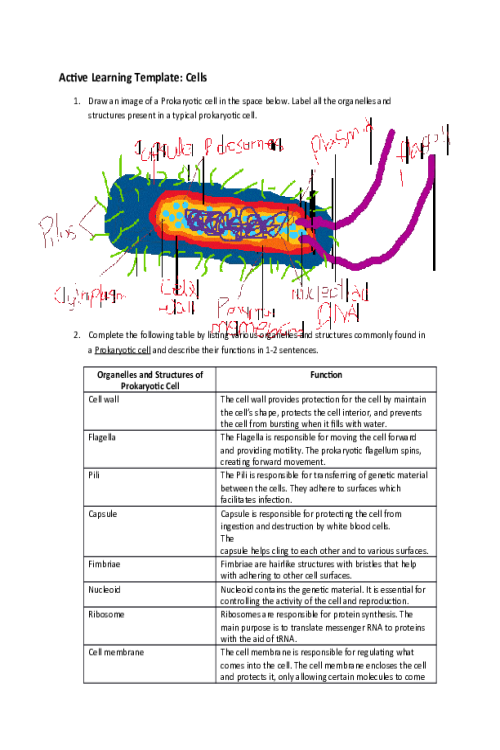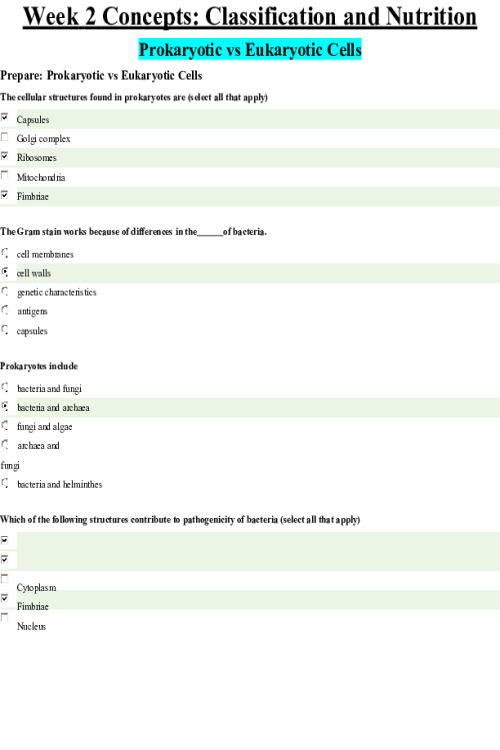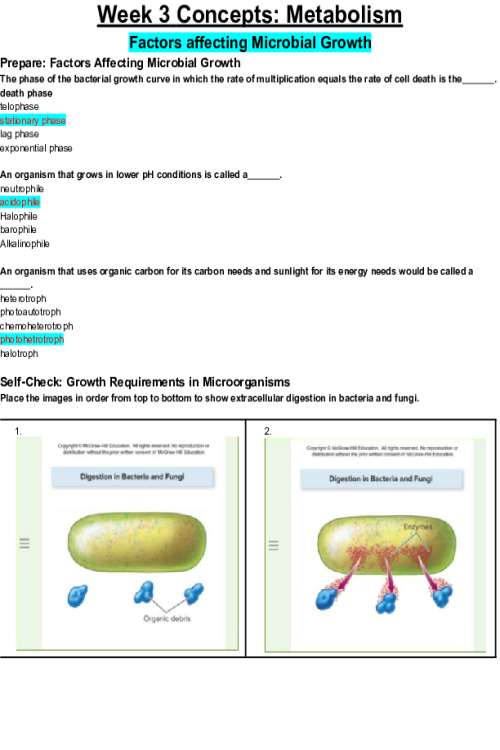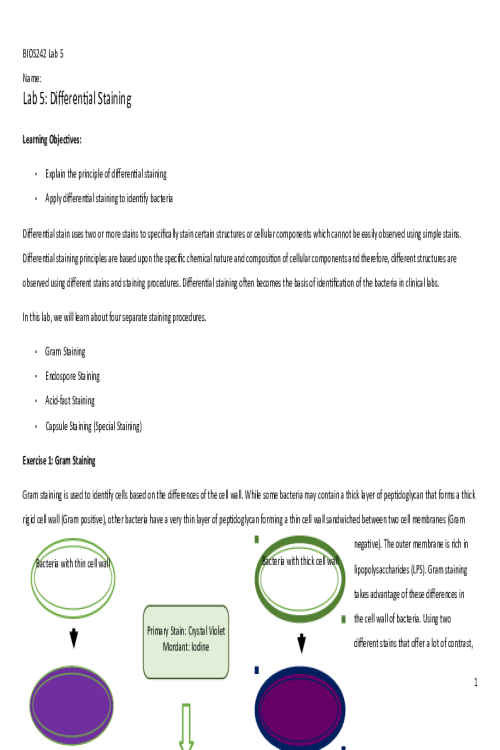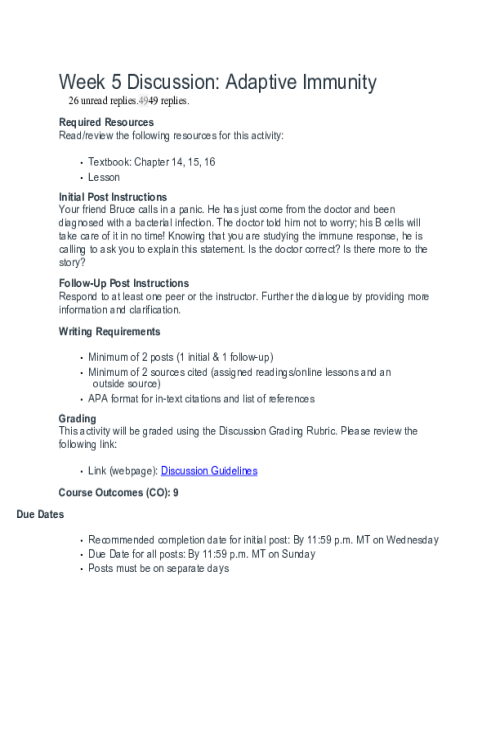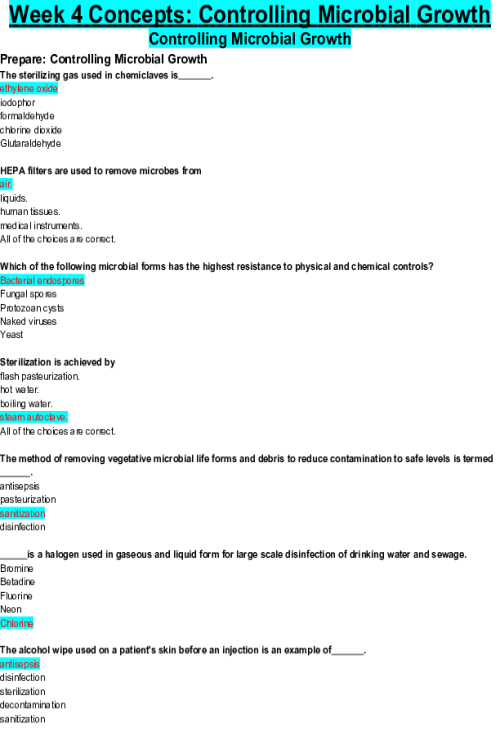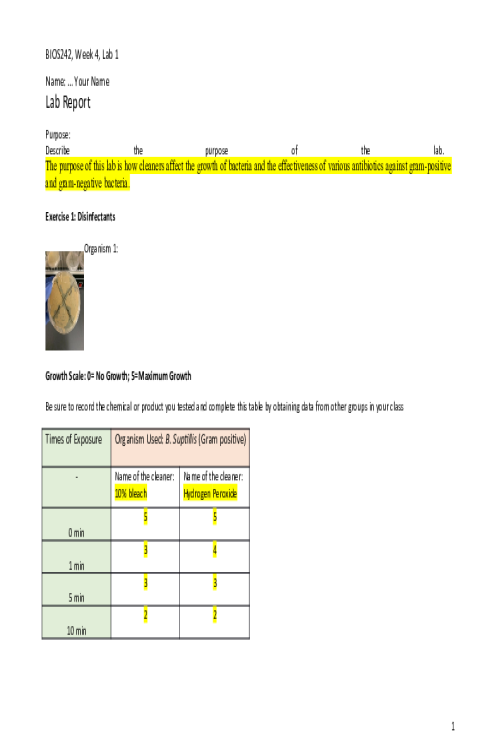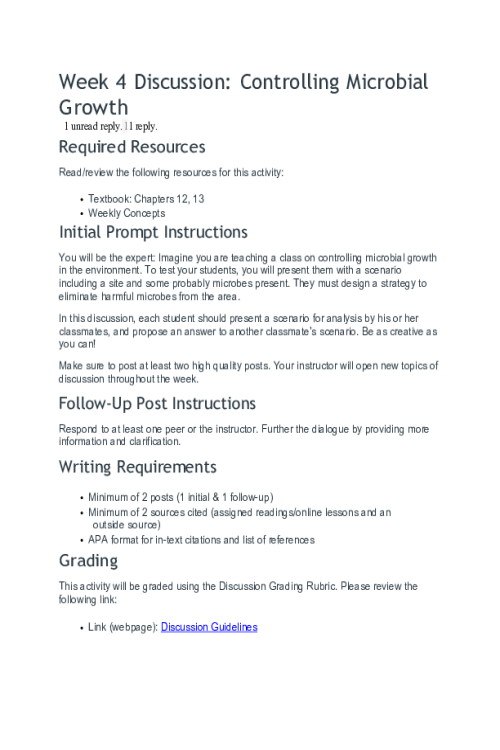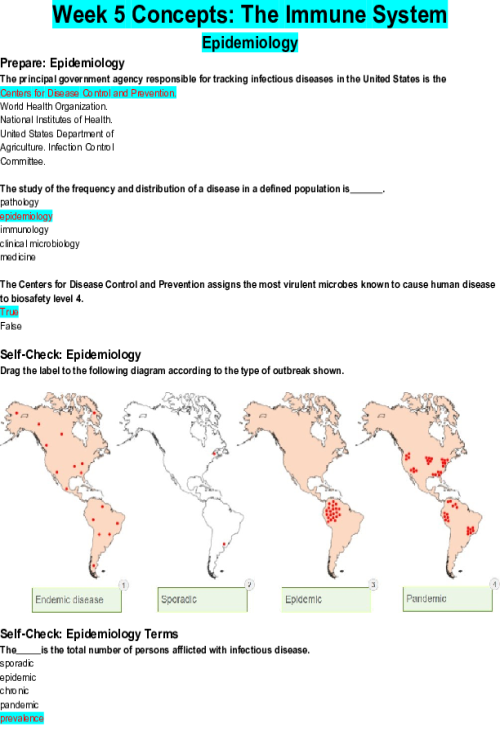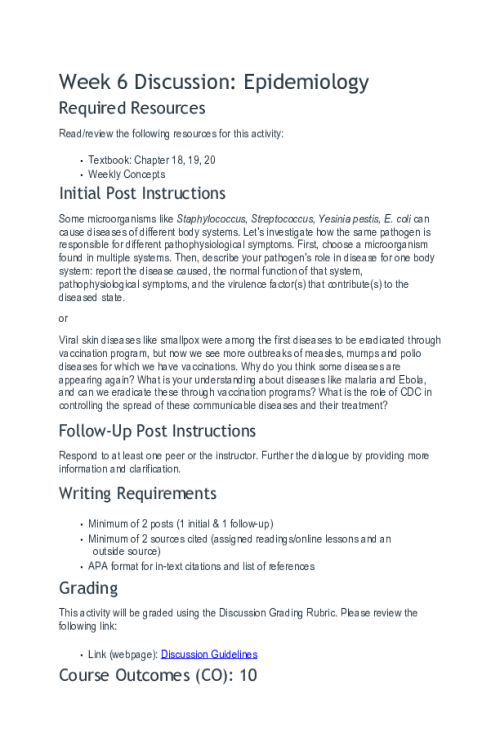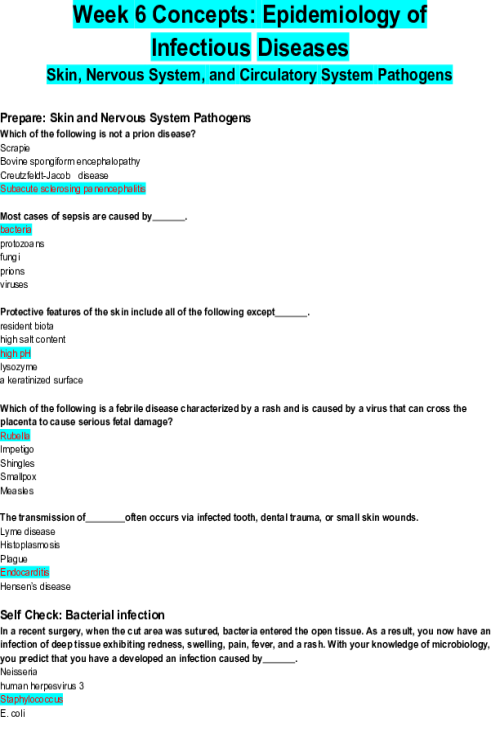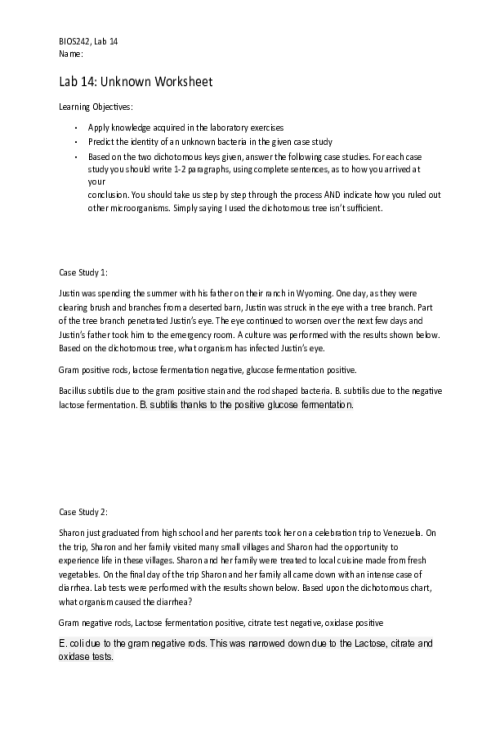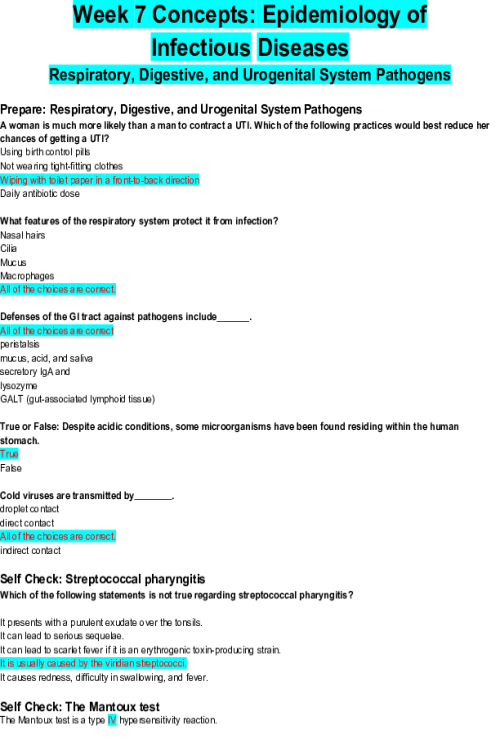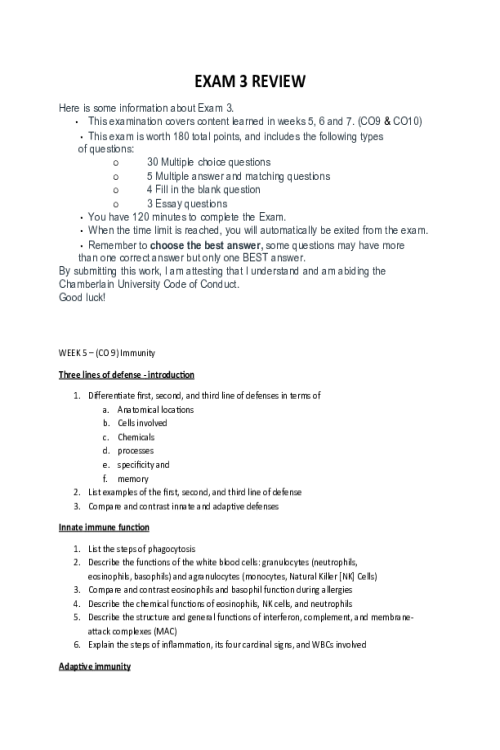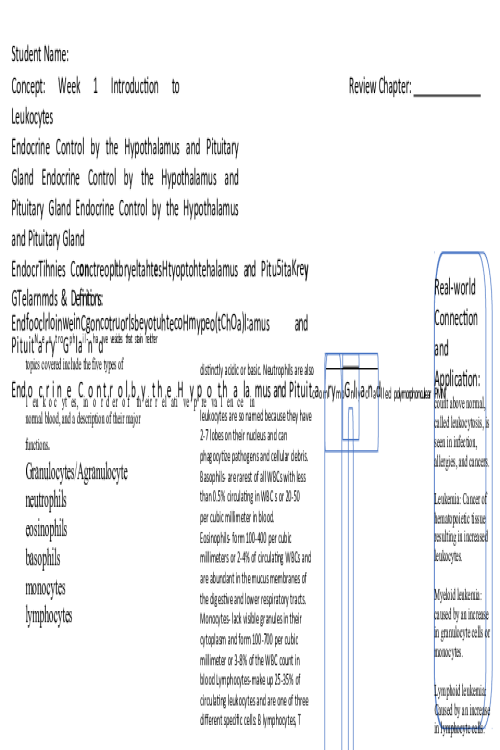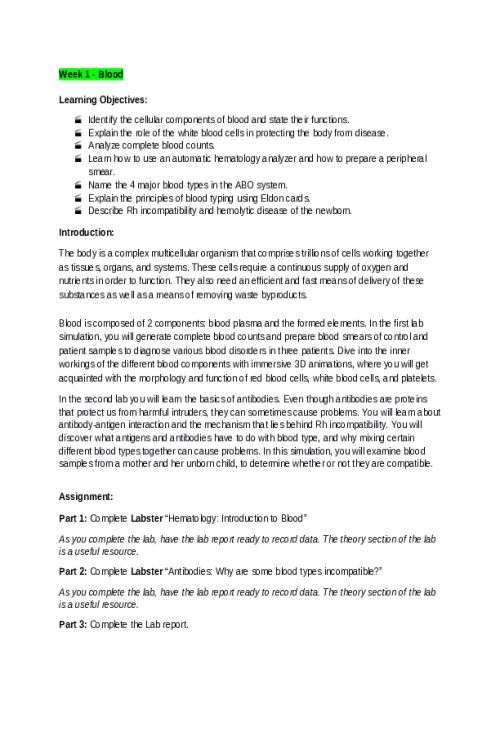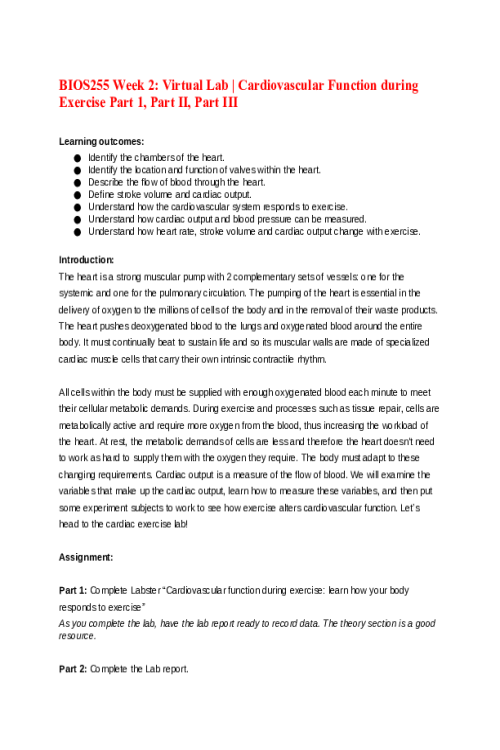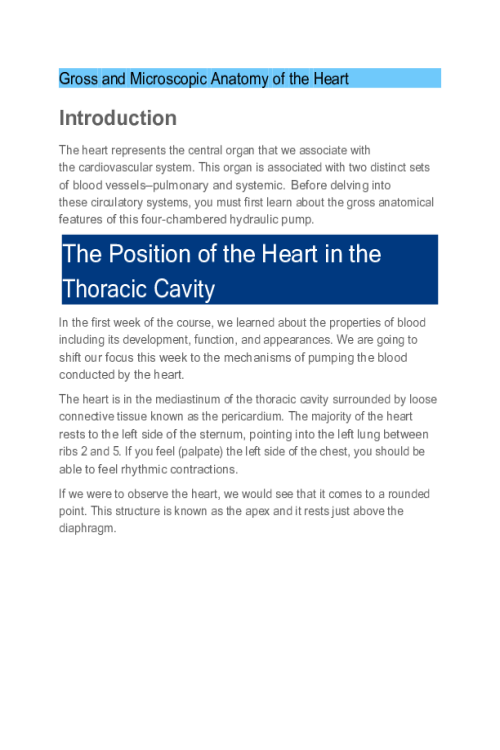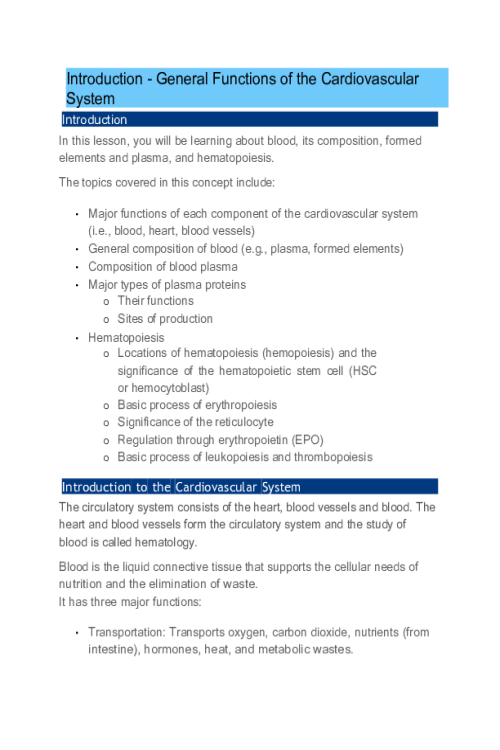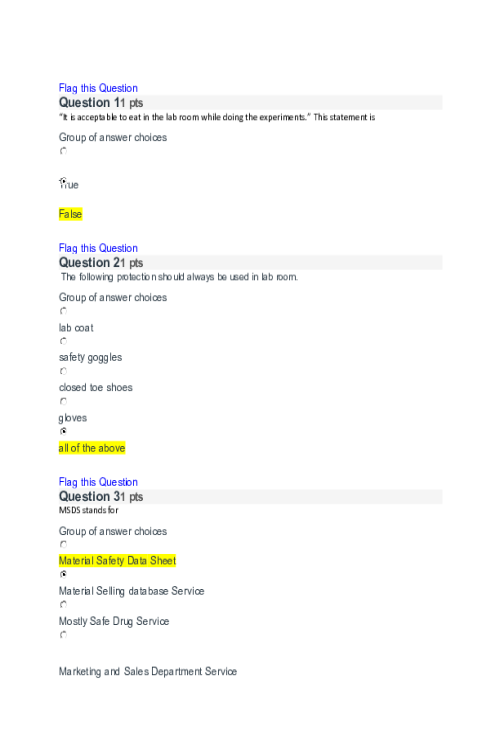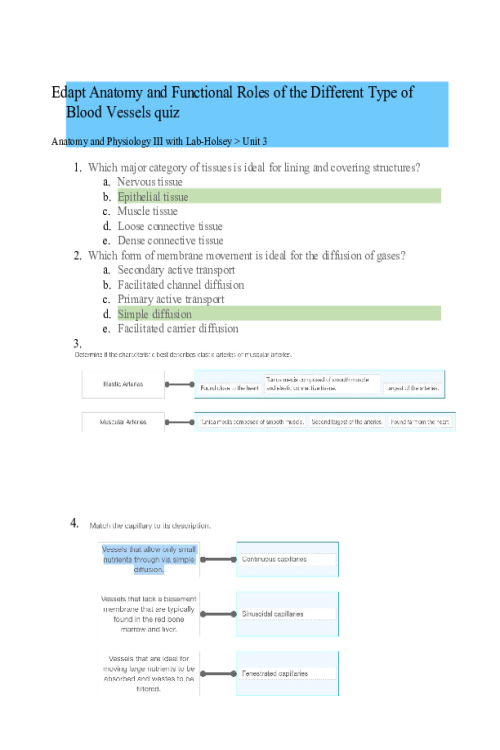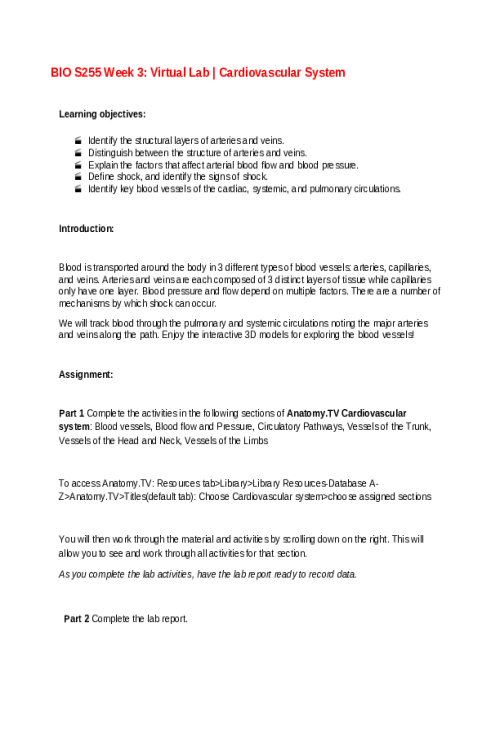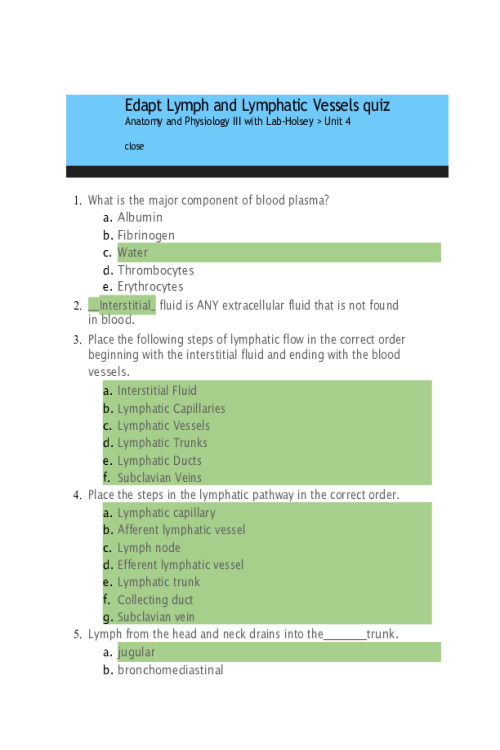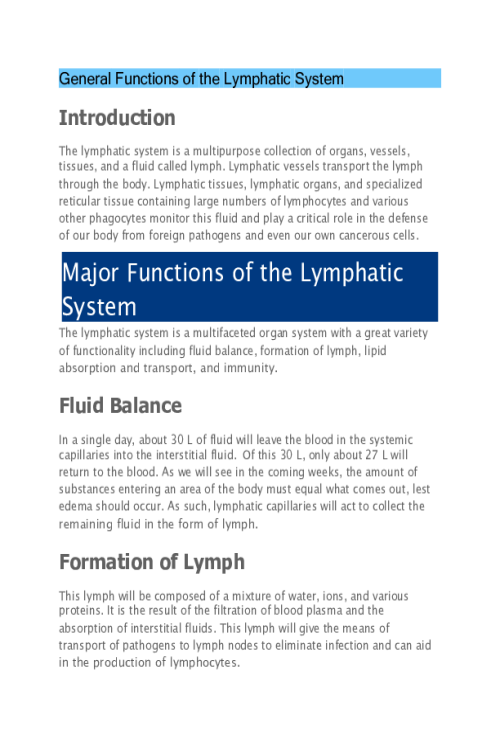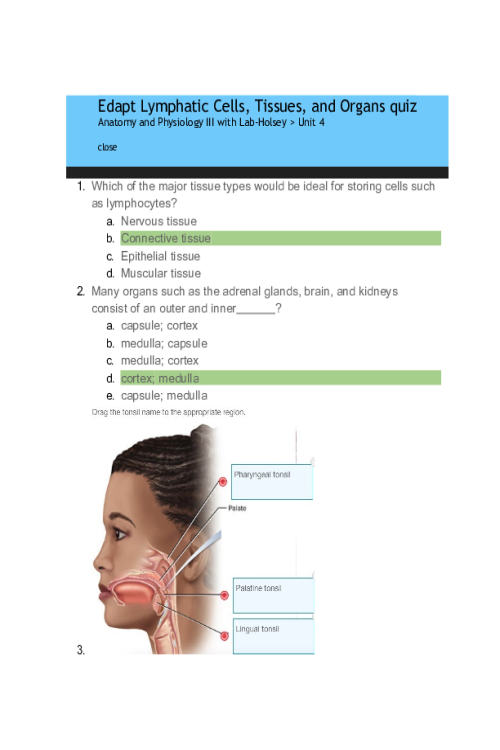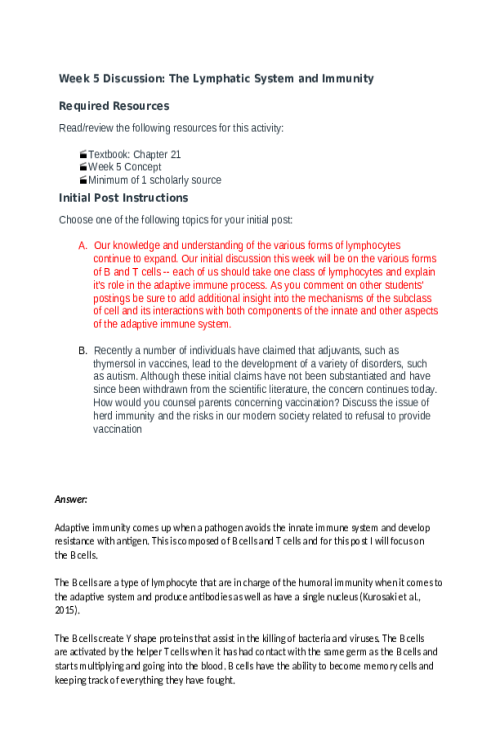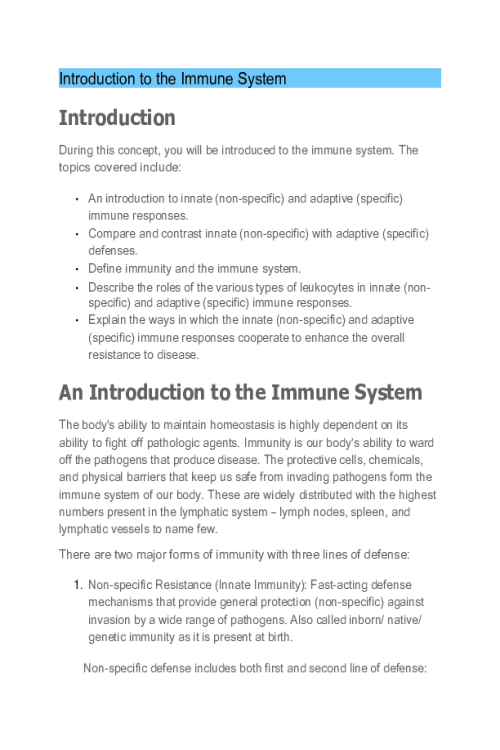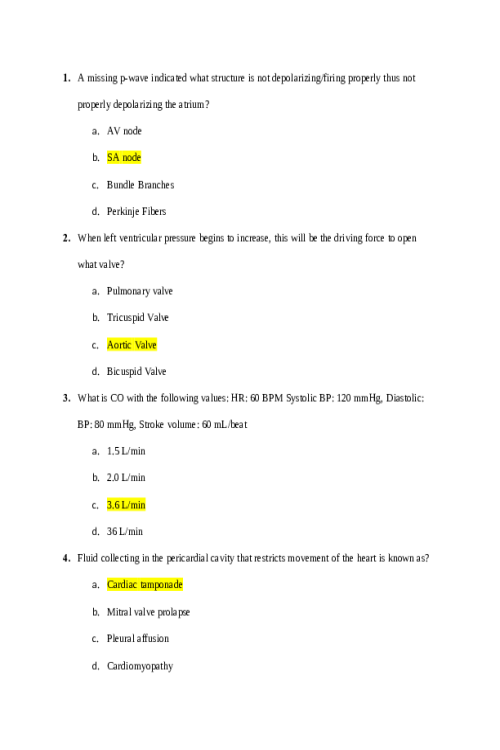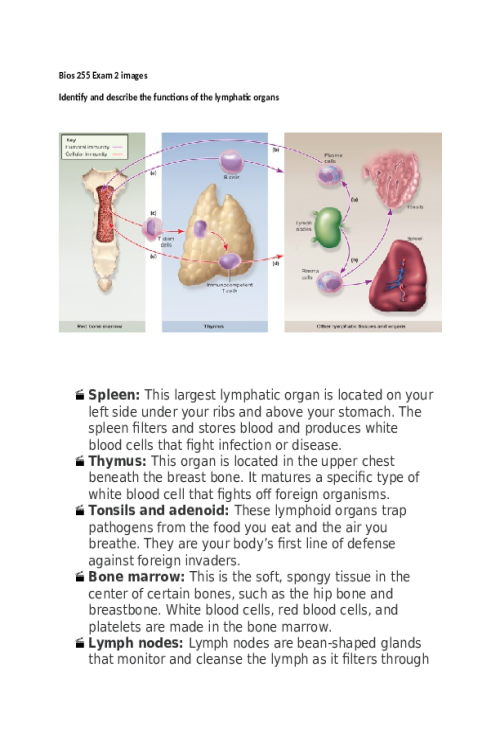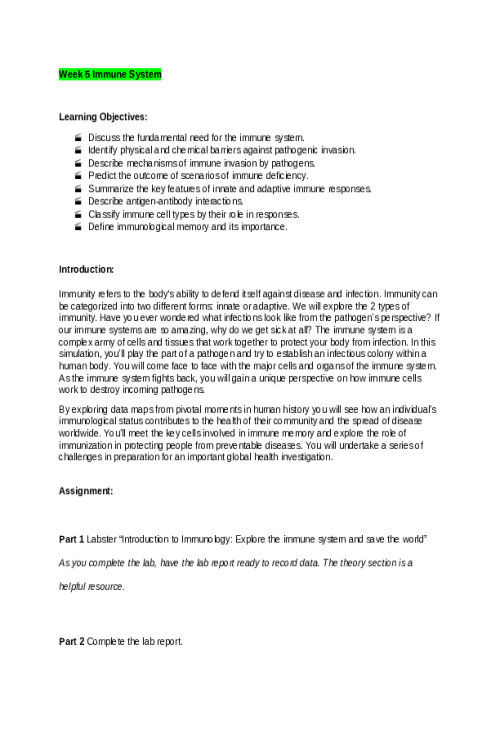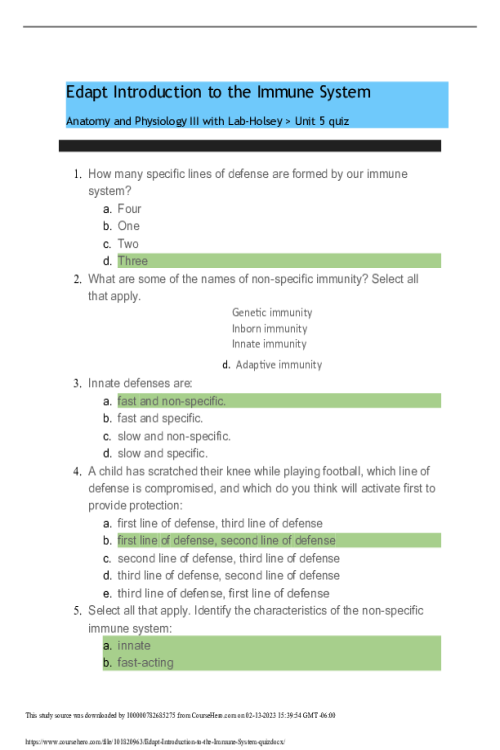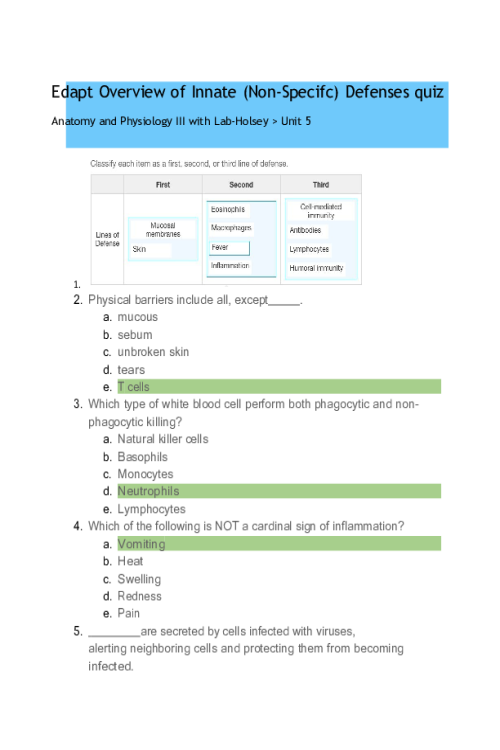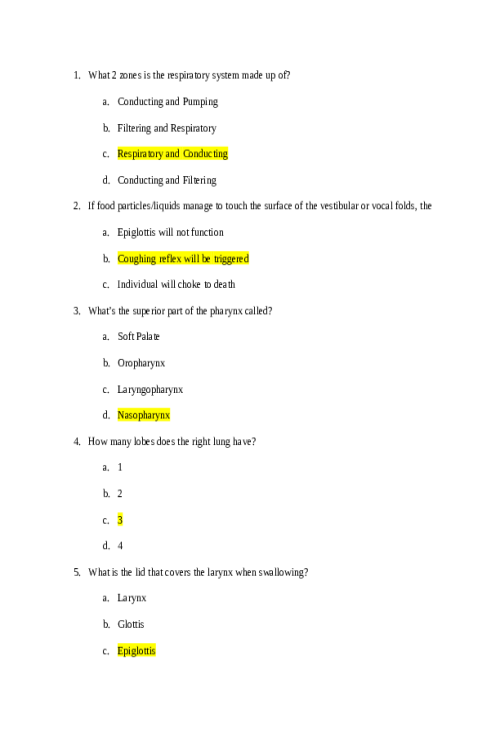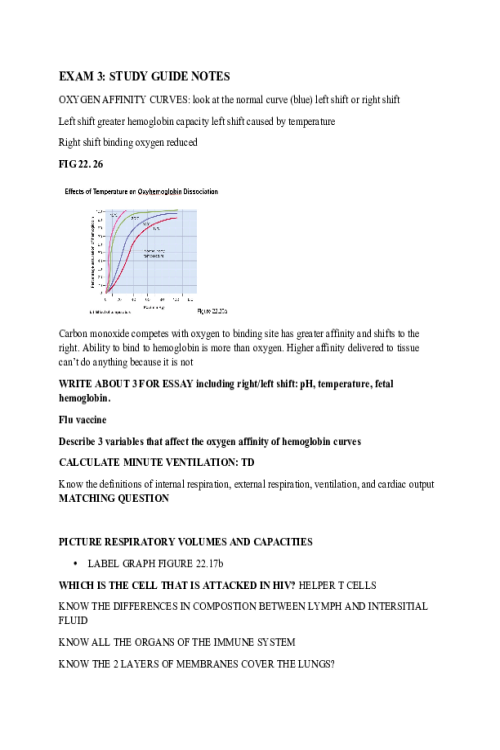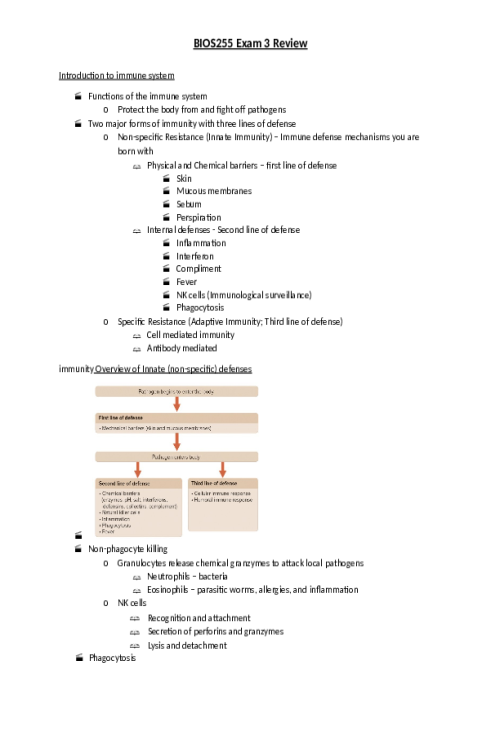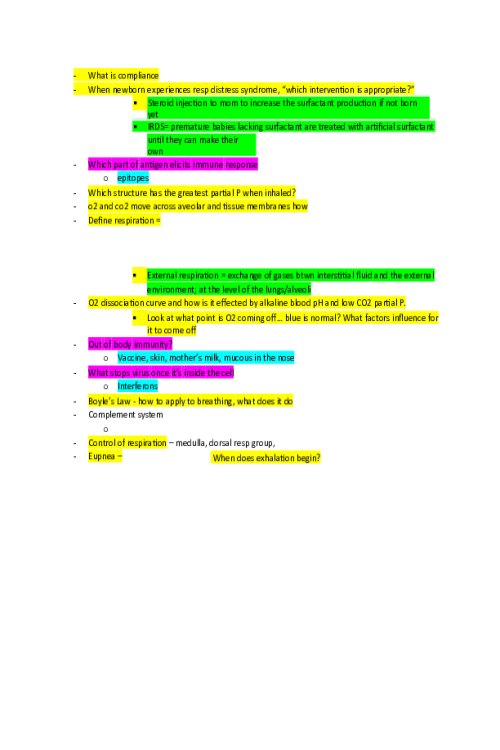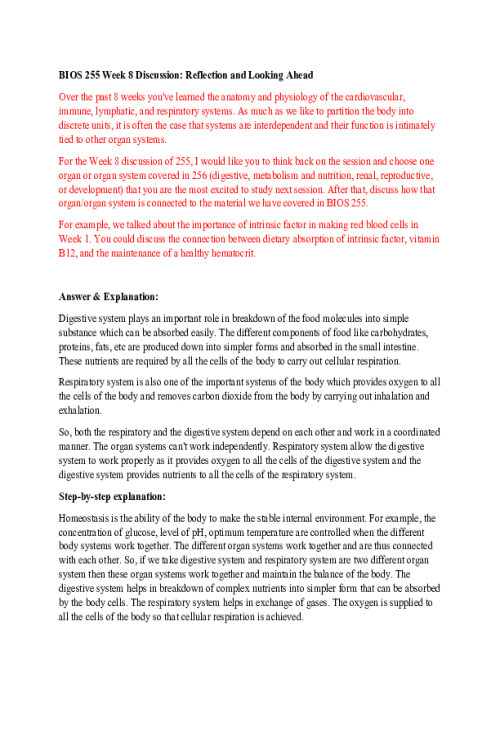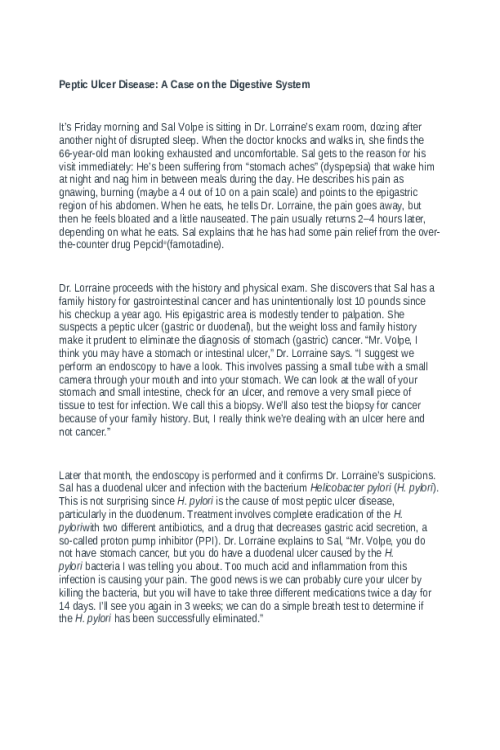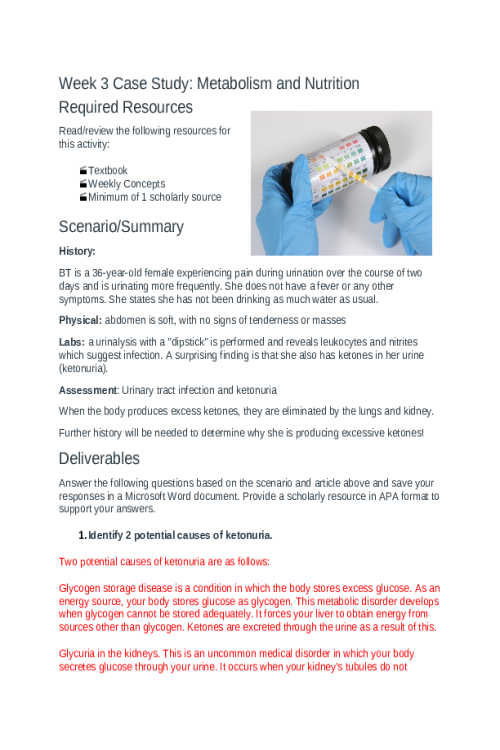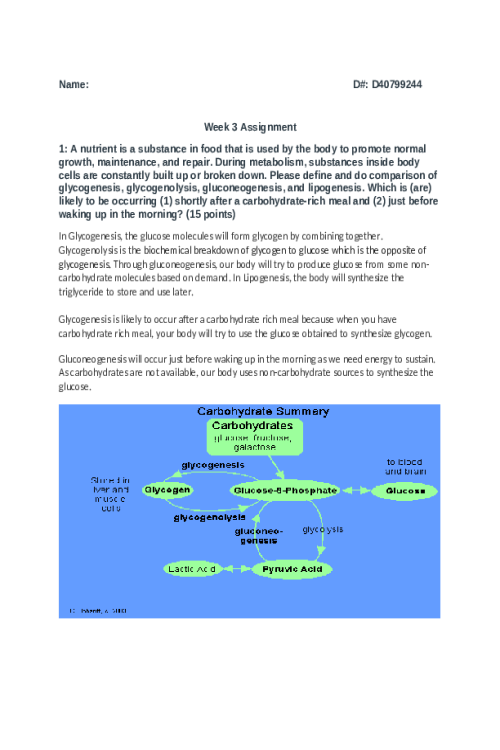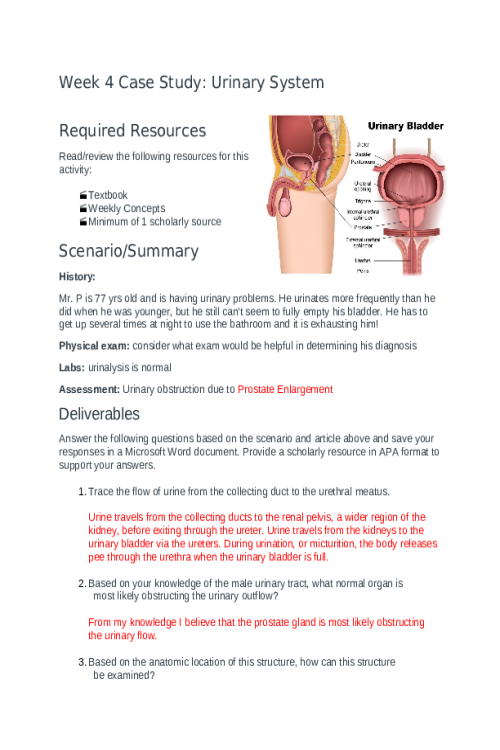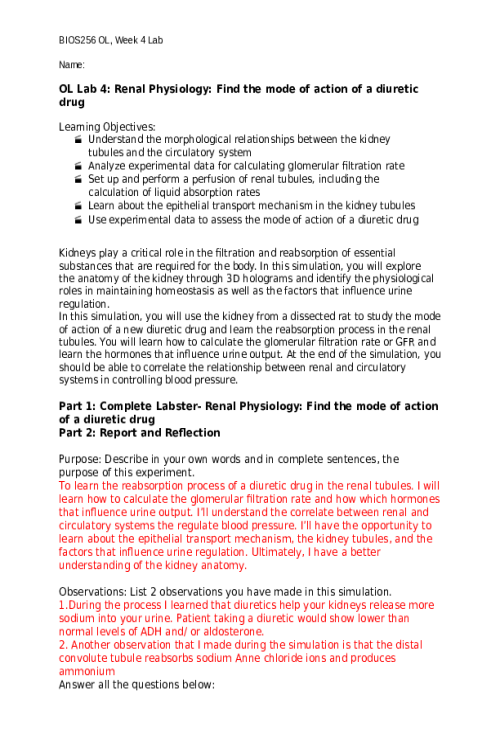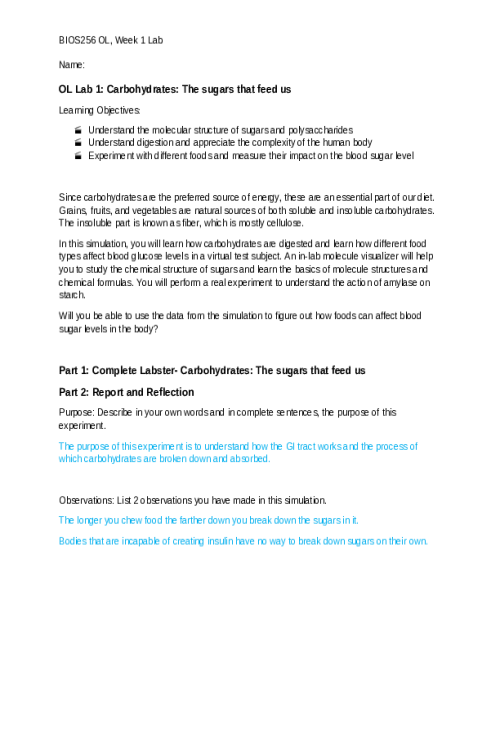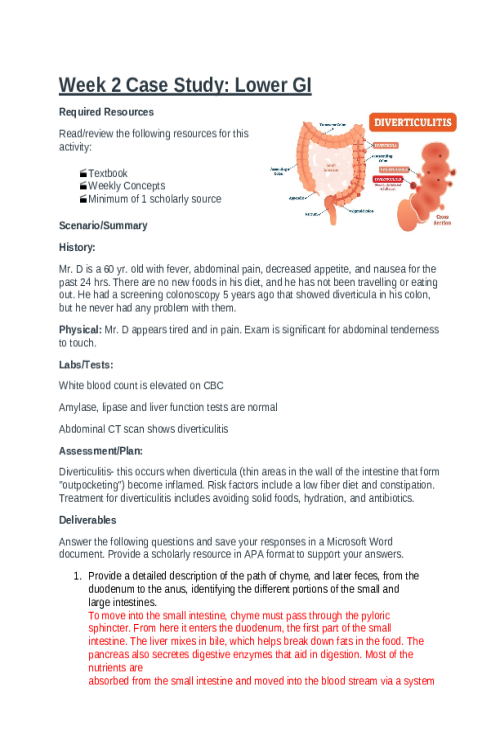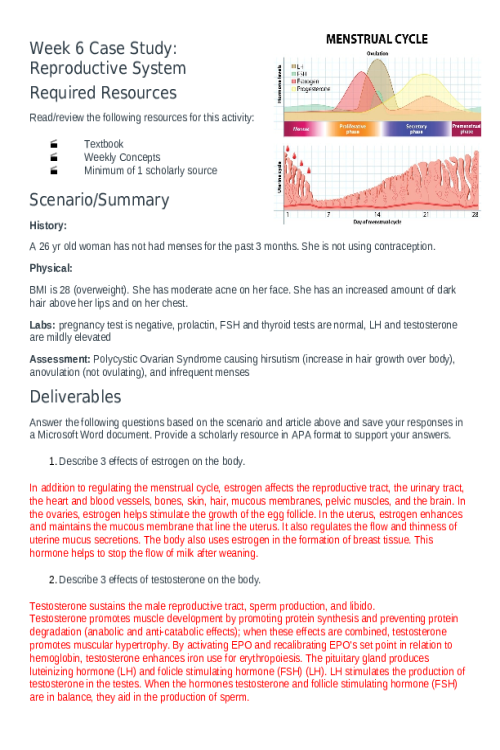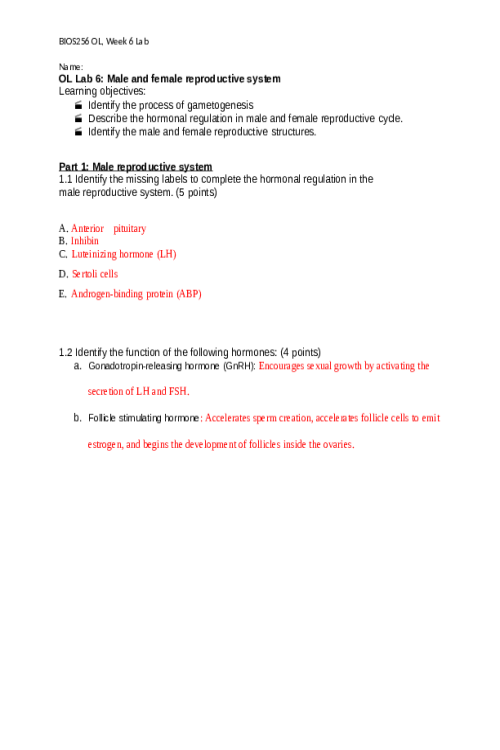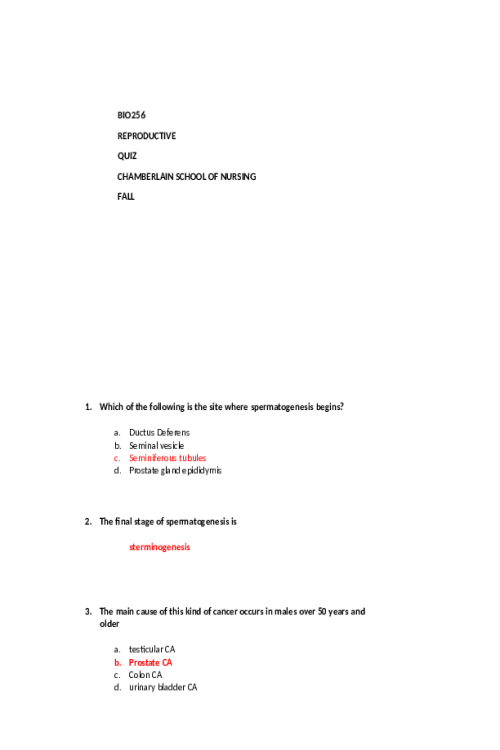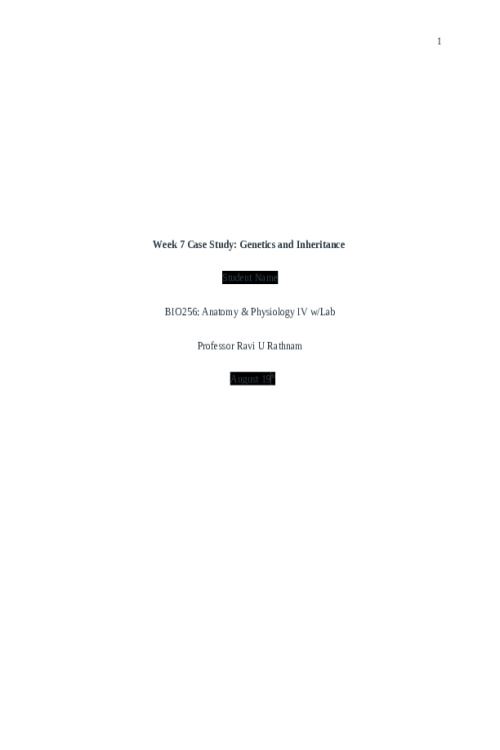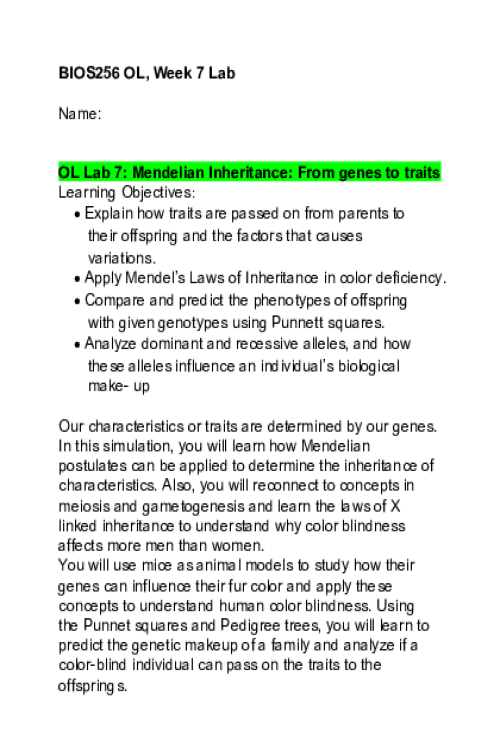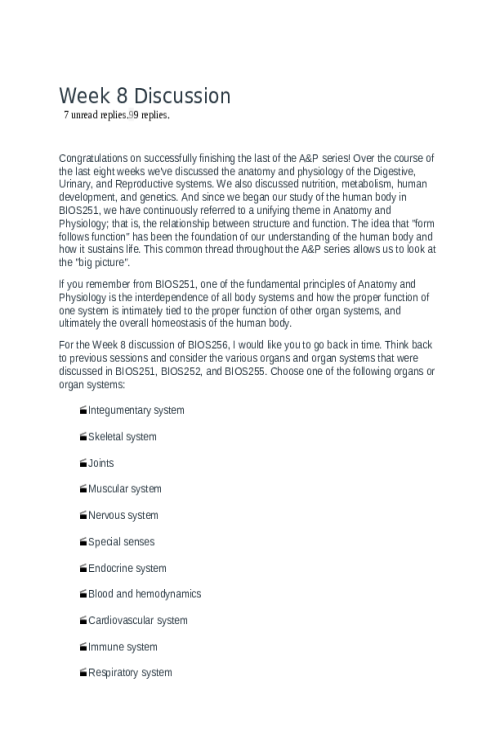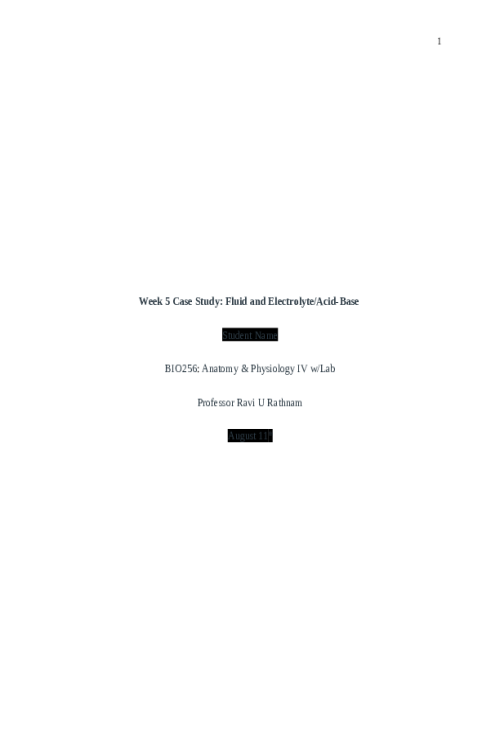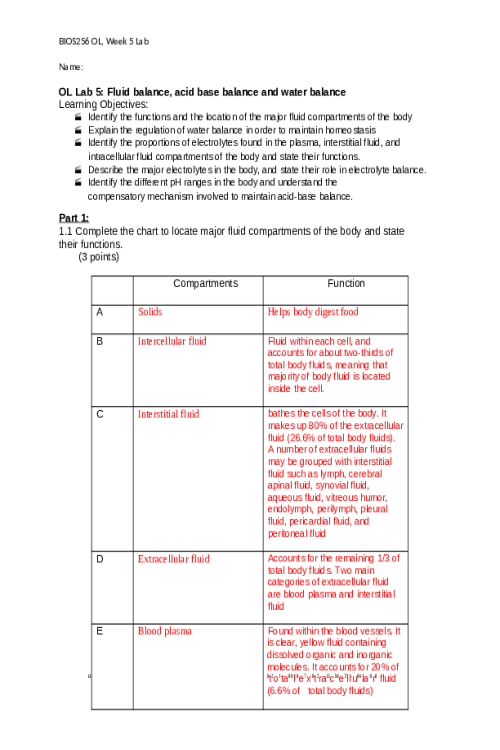BIOS 242 Week 1 Assignment; Lab 1 of 14 Onsite - Culture Transfer Techniques
Lab 1: Culture Transfer Techniques Learning Objectives: Identify the importance of aseptic technique in the field of microbiology Apply the concept of aseptic technique and its importance in the field of microbiology. Identify different forms of basic growth media Transfer a pure bacterial culture from one growth media to another, a process called sub- culturing. Introduction: Microorganisms are everywhere in our environment; they are in the air, the soil, on surfaces (fomites), and on and within living things. In a hospital setting, contamination of clinical samples may have an impact on the diagnosis and treatment of patients. Experimental results from pure cultures, which contain a single type of microorganism, can be skewed and produce erroneous results when contaminated with exogenous microorganisms. Unwanted microorganisms can be introduced into samples by direct contact with contaminated surfaces or hands by touching either the growth media or the inner surfaces of the culture tube with objects that have not been sterilized. In addition, microbes in the air can enter tubes and plates of growth media by way of air currents. Thus, aseptic technique is an important concept to learn in the lab and in clinical settings. Aseptic techniques are designed to prevent unwanted microorganisms from contaminating either sterile materials or pure cultures. If bacteria are handled correctly, only the desired organisms will grow on transfer cultures. Using proper aseptic technique, the transfer of a sample from a pure culture will allow only that specific bacterium to grow. This process is called subculturing and is used to maintain the cells as well as keep them in an active growth phase for experiments. In this lab exercise and in future experiments, it is critical to apply aseptic technique to prevent the contamination of pure cultures. The growth and survival of microorganisms require a source of nutrients and a favorable envir
Related Products
BIOS 242 Week 1 Assignment; Lab 2 of 14 Onsite - Isolation of Pure Cultures
Contributor: Matthew Lillard
$10.00
BIOS 242 Week 2 Assignment; Lab 3 of 14 Onsite; Microscopy Observation of Cells
Contributor: Matthew Lillard
$10.00
BIOS 242 Week 2 Discussion; Characteristics of Prokaryotes and Eukaryotes Cells
Contributor: Matthew Lillard
$10.00
BIOS 242 Week 2 Assignment; Concepts; Classification and Nutrition
Contributor: Matthew Lillard
$10.00
BIOS 242 Week 3 Assignment; Lab 6 of 14 Onsite; Carbohydrate Fermentation
Contributor: Matthew Lillard
$10.00
BIOS 242 Week 3 Discussion; Culturing Microorganisms - Halobacterium noricense
Contributor: Matthew Lillard
$10.00
BIOS 242 Week 3 EXAM 1. Chapters 1, 3, 4, 5, 6, 9 - Multiple Choice Review Questions
Contributor: Matthew Lillard
$10.00
BIOS 242 Week 3 Assignment; Lab 5 of 14 Onsite; Differential Staining
Contributor: Matthew Lillard
$10.00
BIOS 242 Week 5 Assignment; Lab 10 of 14 Onsite; How Germs Spread..
Contributor: Matthew Lillard
$10.00
BIOS 242 Week 5 Assignment; Lab 9 of 14 Onsite; Food Safety.docx
Contributor: Matthew Lillard
$10.00
BIOS 242 Week 4 Assignment; Concepts; Controlling Microbial Growth
Contributor: Matthew Lillard
$10.00
BIOS 242 Week 4 Assignment; Lab 7 of 14 Onsite; Disinfectants and Antibiotics
Contributor: Matthew Lillard
$10.00
BIOS 242 Week 4 Assignment; Lab 8 of 14 Onsite; Fomite Transmission
Contributor: Matthew Lillard
$10.00
BIOS 242 Week 6 Assignment; Pick Your Pathogen - Clostridium Perfringens
Contributor: Matthew Lillard
$10.00
BIOS 242 Week 6 Assignment; Concepts; Epidemiology of Infectious Diseases
Contributor: Matthew Lillard
$10.00
BIOS 242 Week 6 Assignment; Lab 11 0f 14 Onsite; Bacteria of the skin
Contributor: Matthew Lillard
$10.00
BIOS 242 Week 6 Assignment; Lab 12 0f 14 Onsite; Bacteria of Respiratory System
Contributor: Matthew Lillard
$10.00
BIOS 242 Week 7 Assignment; Lab 14 of 14 Onsite; Unknown Bacteria
Contributor: Matthew Lillard
$10.00
BIOS 242 Week 8 EXAM 3 Review. Chapters 14-23 (Excluding 16, 17)
Contributor: Matthew Lillard
$10.00
BIOS 242 Week 7 Assignment; Lab 13 of 14 Onsite; Bacteria of Digestive System
Contributor: Matthew Lillard
$10.00
BIOS 255 Week 1 Virtual Lab; Hematology Part I, Part II, Part III
Contributor: Chandler Hallow
$10.00
BIOS 255 Week 2 Virtual Lab; Cardiovascular Function during Exercise Part 1, Part II, Part III
Contributor: Chandler Hallow
$10.00
BIOS 255 Week 3 Concepts I The Cardiovascular System- Blood Vessels (Quiz)
Contributor: Matthew Lillard
$10.00
BIOS 255 Week 4 Assignment; Case Study I Natural Killer Cell Deficiency
Contributor: Matthew Lillard
$10.00
BIOS 255 Week 4 Concepts; The Lymphatic System (Edapt Lymph, Lymphatic Vessels Quiz)
Contributor: Matthew Lillard
$10.00
BIOS 255 Week 4 Concepts; The Lymphatic System (Edapt Lymphatic Cells, Tissues, Organs Quiz)
Contributor: Matthew Lillard
$10.00
BIOS 255 Week 5 Discussion; The Lymphatic System and Immunity; Option A
Contributor: Matthew Lillard
$10.00
BIOS 255 Week 5 Virtual Lab; Introduction to Immunology Part I, Part II
Contributor: Matthew Lillard
$10.00
BIOS 255 Week 5 Assignment; Case Study I Hypersensitivity Reactions
Contributor: Matthew Lillard
$10.00
BIOS 255 Week 5 Concepts; The Immune System (Edapt Immune System Quiz)
Contributor: Matthew Lillard
$10.00
BIOS 255 Week 5 Concepts; The Immune System (Edapt Innate Defenses Quiz)
Contributor: Matthew Lillard
$10.00
BIOS 256 Week 2 Discussion; Peptic Ulcer Disease; A Case on the Digestive System.
Contributor: Daniel Sturridge
$10.00
BIOS 256 Week 2 OL Lab 2; Intestinal Glucose Transport; Study a mouse intestine model todiagnose an infant
Contributor: Daniel Sturridge
$20.00
BIOS 256 Week 3 Discussion; Glycogenesis, glycogenolysis, gluconeogenesis, and lipogenesis
Contributor: Daniel Sturridge
$10.00
BIOS 256 Week 3 OL Lab 3; Cellular Respiration; Measuring energy consumption during exercise
Contributor: Daniel Sturridge
$20.00
BIOS 256 Week 4 OL Lab 4; Renal Physiology; Find the mode of action of a diuretic drug
Contributor: Daniel Sturridge
$20.00
BIOS 256 Week 1 OL Lab 1; Carbohydrates The sugars that feed us
Contributor: Daniel Sturridge
$20.00
BIOS 256 Week 2 Discussion; Peptic Ulcer Disease; A Case on the Digestive System..
Contributor: Daniel Sturridge
$10.00
BIOS 256 Week 6 Discussion; male and female reproductive systems
Contributor: Daniel Sturridge
$10.00
BIOS 256 Week 7 OL Lab 7; Mendelian Inheritance From genes to traits
Contributor: Daniel Sturridge
$20.00
BIOS 256 Week 5 Discussion; Fluid balance, electrolyte balance, and acid-base balance
Contributor: Daniel Sturridge
$10.00
BIOS 256 Week 5 OL Lab 5; Fluid balance, acid base balance and water balance
Contributor: Daniel Sturridge
$20.00
